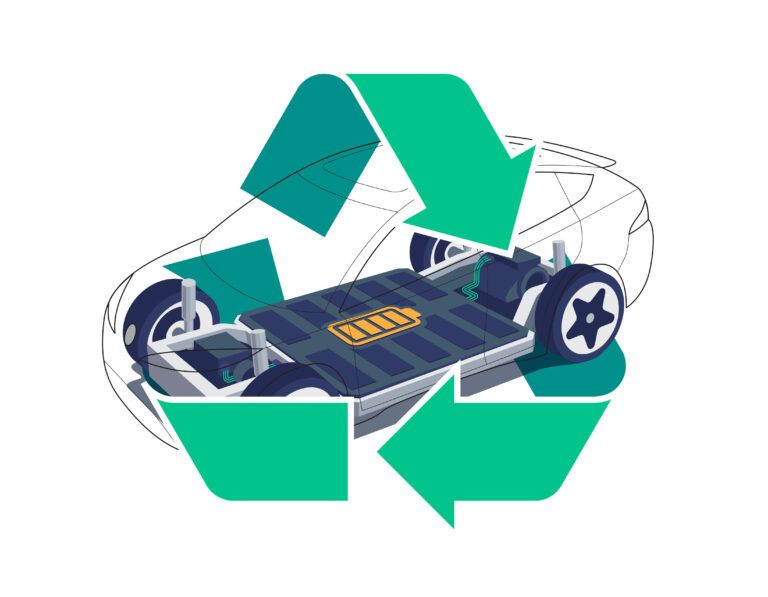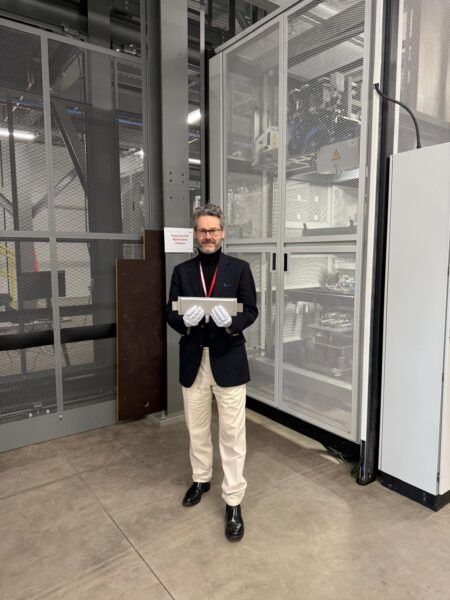In the mission to create a sustainable circular economy for battery metals, Recyclus Group has entered into an engineering development partnership with WMG at the University of Warwick.
WMG and Recyclus have created an Engineering Doctorate (“EngD)” focused on battery recycling technologies and a transfer of current and future applications. The EngD encompasses a four-year program supporting talented individuals at varying career stages to develop new critical skills sets in this sector and will also focus on addressing contemporary industrial and technical challenges across the battery recycling sector.
Recyclus has developed the first industrial scale process that can work across all of the key Lithium-ion (“Li-ion”) battery technologies and Recyclus and WMG will be sharing this important technology through the research programs at WMG, working across a range of development areas.
Professor David Greenwood, WMG director for Industrial Engagement and CEO of the WMG center High Value Manufacturing Catapult said:
“Whilst the UK industry has been remarkable in building a world-class ecosystem supporting the development of our battery manufacturing capability, we must continue to innovate to capitalize on that success.
“In our September 2020 report, WMG highlighted that by 2040, UK automotive lithium-ion battery cell production alone will require 131,000 tonnes of cathodic metals. With the right infrastructure, recycling can supply 22% of this demand. This represents not only a positive environmental impact, but large savings for manufacturers that build the business case for increased battery recycling capabilities in the UK.
“The Recyclus Group Investment was needed to create suitable recycling facilities in the UK, and their process allows economic recovery of a large percentage of battery material. The process will help protect the environment, secure valuable raw materials, reduce the cost of transport and support the UK with its COP26 commitments.
“Our joint EngD program will help drive the development of the skills base that will support the circular economy that we will see develop around battery materials as we accelerate the transition towards an electrified future”
Alex Stanbury, chief executive officer of Technology Minerals, said: “The Recyclus team have been working with WMG for nearly two years now, both sharing our respective expertise as we have been developing our proprietary processes across the five battery chemistries, and learning from WMG’s world-class research programs. These are critical to achieving a leadership position for the UK, particularly developing proprietary technology for the processing of black mass into the key metals that can back into the UK battery gigafactories supply chain and therefore significantly reducing the supply-side pressures.
“There is a clear demand building as a result of the quantum shift to transport electrification, and that is now extending into key UK sectors, including energy storage, freight and aerospace. Working with WMG we will remain at the forefront of our sector, focused on extracting raw materials required for lithium-ion batteries, whilst solving the ecological issue of spent Li-ion batteries, by recycling them for re-use by battery manufacturers.”
With the shortage forecast for key battery minerals in the near-immediate future, there is a concern that the road to the rollout of more electric vehicles will be congested. According to the Copper Development Association (CDA), the average copper content of an ICE vehicle is around 23kg, and this will increase to 60kg for plug-in hybrid electric vehicles and to 83kg for pure EVs. Also, full-electric buses can use between 224kg to 369kg of copper. According to a report released in February 2021 by the World Bureau of Metals Statistics ((WBMS)), the global copper market had a supply shortage of 1.391 million tons from January to December 2020, up from 383000 tons for the whole of 2019.
All the partners involved believe that the recycling of battery materials could play an important role in reducing the pressures on supply.





